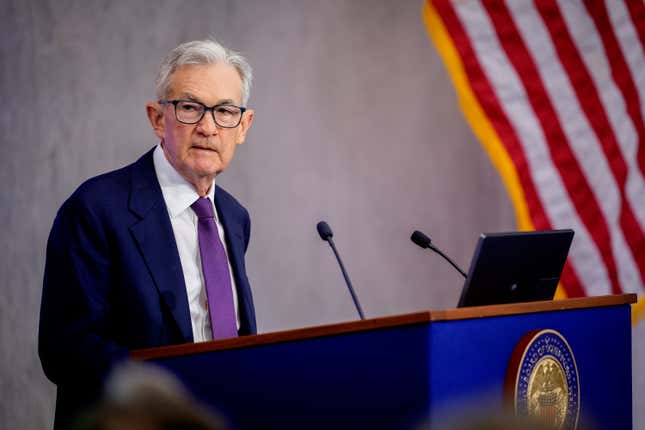
Federal Reserve Chair Jerome Powell is warning that near-zero interest rates are likely to be a thing of the past.
During his opening remarks at the Federal Open Market Committee 2025 review on Thursday, Powell indicated that longer-term interest rates are to remain higher due to economic volatility.
“Higher real rates may also reflect the possibility that inflation could be more volatile going forward than in the inter-crisis period of the 2010s,” Powell said. “We may be entering a period of more frequent, and potentially more persistent, supply shocks — a difficult challenge for the economy and for central banks,”
The review, which takes place every five years, reevaluates the Fed’s monetary policy framework — the outcomes and methods it uses to determine interest-rate policy.
During the five years since the 2020 review, the Fed has observed changing economic conditions, where surging inflation and historically high borrowing have become the norm. Even with inflation moving towards the Fed’s 2% target in the long-term, near-zero rates may not feature in monetary policy moving forward.
The Fed’s benchmark rate remained close to zero during the seven years following the 2008 financial crisis. That’s in stark contrast to the aggressive hikes of the past few years: Interest rates soared to a 22-year high in 2023, reaching 5.33%.
Inflation has cooled significantly as a result, reaching a four-year low of 2.8% in April. Despite this, the Fed has held its benchmark rate at 4.5%. Powell reiterated that the Fed remains committed to its 2% inflation target and said it’s premature to consider rate cuts, citing persistent inflationary pressures and a robust labor market.
Powell did not make any explicit reference to President Donald Trump’s tariffs on imports into the U.S. during his remarks, but the “supply shocks” could be in reference to the impact of the president’s trade war on supply chains.
In a speech before the Economic Club of Chicago last month, Powell expressed concern that the tariffs may leave the Fed in a bind between tackling inflation and boosting growth.
“We may find ourselves in the challenging scenario in which our dual-mandate goals are in tension,” Powell said. “If that were to occur, we would consider how far the economy is from each goal, and the potentially different time horizons over which those respective gaps would be anticipated to close.”